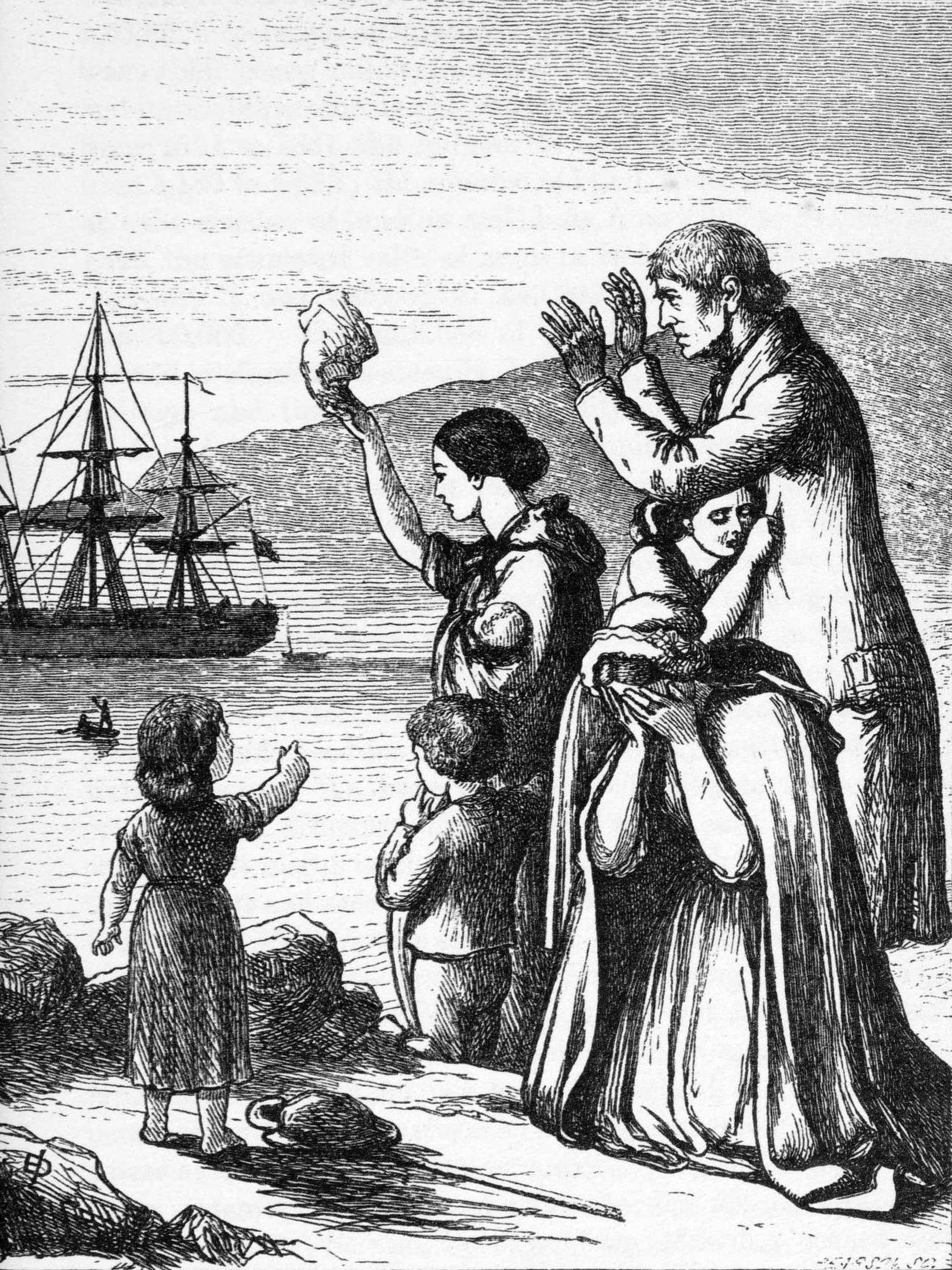This morning we were honored to celebrate Mass at the Church of Saint Mary of the Visitation in Killybegs, Donegal. The Church was built during the Great Famine and was an inspiration to us all. Here is the homily I offered during Mass.
In 1846, just two years after this Church was first opened, the Quaker John Confield visited Killeybegs and wrote this: “We found the greatest possible want existing here…the distress is increasing, and becoming daily more and more alarming.”
The distress was due to the blight which had turned most of their potato crop into a slimy-black stinking mass. The blight and resulting famine spread to every corner of Ireland, until, as one Bishop wrote: “No imagination can conceive, no pen can describe it. To have anything approaching a correct idea of the suffering of the poor, you should be here on the spot and see them with your own eyes, the deaths from starvation average more than fifty per day…corpses were lying in the fields and the people are so terrified that none but the clergy can be induced to approach. I yesterday sent a coffin out for a poor creature who died in a field, of fever, and have just heard that no one could be prevailed to put the body in it.”
Like the royal official in today’s Gospel, how the mothers of Ireland must have knelt at that communion rail and cried: “Lord, come down before my child dies.”
Like the royal official in today’s Gospel, how the mothers of Ireland must have knelt at that communion rail and cried: “Lord, come down before my child dies.”
But despite the death and suffering all around, they would have heard the Lord responding: “Keep going…your child will live.” A promise expanded on by the prophet Isaiah: “No longer shall the sound of weeping be heard…or the sound of crying; No longer shall there be…an infant who lives but a few days, or an old man who does not round out his full lifetime…”
So deeply did the people of Kellybegs believe that promise, that in the midst of unbelievable suffering, they continued to build this Church. As they were carrying their children and parents to unmarked mass graves, they continued to build this Church, finishing the new roof at the end of the first year of the famine! They refused to let fear destroy them. They believed in God’s promise, longing for the day when weeping would cease and relief would come. They were like David and Johanna, who lived in East Cork in the village of Macroney. David died the first year of the famine, so Joanna packed up her oldest, Maurice, and his brother and sister and moved in with her family down the street in Glenville.
The next year she joined the million Irishmen who would leave Ireland on coffin ships and sailed to Boston.
Why? Because she too had cried to the Lord: “come down before my child dies.” And she believed him when he replied: “Keep going…your child will live.” The day will come when the weeping will cease and the child and even the old man will live.
And you know what? Seven years later her oldest son Maurice married the Sweeney girl in Lawrence and then their son, David, moved to Hopkinton and had a son George who started up a farm in Upton and had a son James who, as a carpenter, built a house with his bride Marguerite in Millbury. And they had a son James Patrick who preaches to you today in Balleybegs, because God keeps his promises: “Keep going…your child will live.” The tears will cease and death will be no more.
They believed his promises, and so should we.

